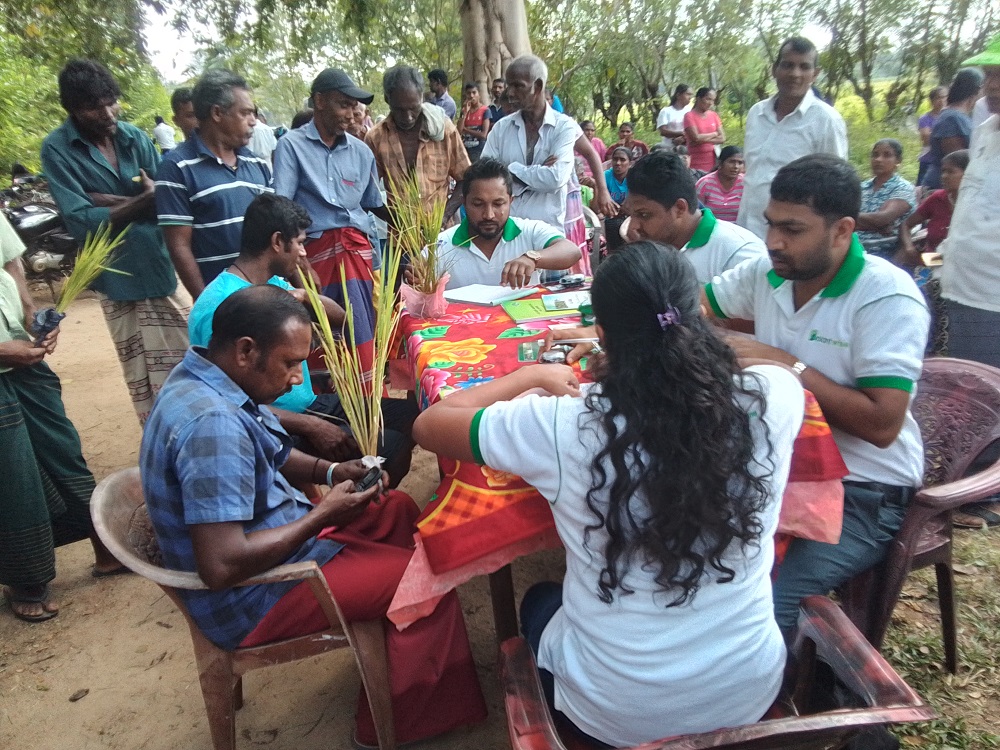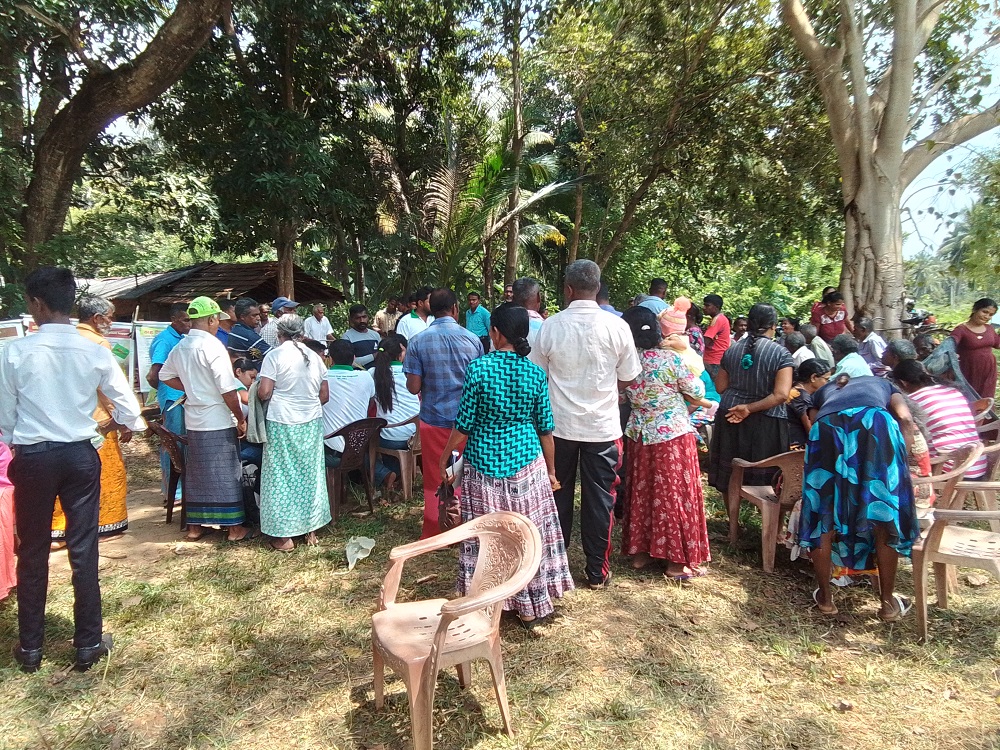
The CABI-led Permanent Plant Clinic Programme (PCCP) is working in partnership with the Mahaweli Authority of Sri Lanka to tackle the issue of yellowing of rice paddies which is threatening livelihoods and food security in the Mahaweli region.
Rice is an essential crop for Sri Lankans – both culturally and as a vital source for consumption as a staple food.
Based on 2016 per capita consumption of 104.5 kg per annum, the annual national rice demand was 2.1 million MT which is equivalent to 3.2 million MT of paddy.
After adjusting for seed paddy, processing, waste and other requirements, Sri Lanka needs to produce 4 million MT of paddy to fulfil the above national demand.
However, the Mahaweli Authority of Sri Lanka and the wider country’s Ministry of Agriculture and the Department of Agriculture have recognised that yellowing of paddy plants, yellow spot disease, insect infestation and nematode disease can be seen in paddy cultivations.
With the ability to produce healthy rice crops at risk, CABI has been working in partnership with the authorities under the PCCP programme to help provide timely diagnoses of yellowing of rice paddies and other issues.
Permanent Plant Clinics have been established in Dehiaththakandiya and Sevanapitiya in Mahaweli Systems C and B, respectively, where 55 agronomists and field officers – trained as Plant Doctors – are helping farmers to mitigate their crop pest and disease problems.
On the very first day of the Plant Clinics operating, 130 farmers brought samples from their rice paddies with yellowing problems being highlighted as a matter of concern. After diagnosis, the Plant Doctors gave the farmers advice on how to mitigate their problems.

Dr Vinod Pandit, Programme Leader, Development Communications and Extension based at CABI’s centre in India, said, “The Mahaweli Authority of Sri Lanka plays a significant role in Sri Lanka’s agriculture as it covers 39% of the whole island and 55% of the Dry Zone, which are major agricultural areas.
“The major livelihood of the area is farming, especially rice paddies. Other Field Crops (OFCs) include vegetables and fruits. Agronomists and Field Officers who have been trained as Plant Doctors are essential to help disseminate technologies developed by the Department of Agriculture to improve agriculture in the area.”
The Sri Lankan Department of Agriculture stated that the main reason for yellowing of rice plants is due to nutrient deficiency of the soil and an increase in salinity in certain paddy fields.
Over the past three cultivation seasons, the Department of Agriculture says, chemical fertilizers – such as TSP (Mud fertilizer), Urea and MOP, were not applied to the field. Therefore, the amount of nitrogen, phosphorus and potassium available in the soil has been very low.
The Department of Agriculture has recommended that farmers apply 70% of chemical fertilizers and 30% organic fertilizers for paddy cultivation during this Maha season.
Unless this advice is taken, officials believe that the Maha paddy harvest, for example, could drop by 10% due to the yellowing disease which is more susceptible when the nutrients in the soil are insufficient.
Root damage, caused by nematodes, can also make rice plants more susceptible to secondary infections. Infection results in stunted, deformed, and necrotic root systems, with potentially high yield loss.
As such, CABI – through the PCCP programme and in partnership with the regional and central Government authorities – are helping farmers mitigate their current crop issues as well as prevent future ones from arising.
The PCCP concept was introduced to Sri Lanka in 2009 as a pilot project in selected districts and the Department of Agriculture decided to extend the programme following good results.
Once a diagnosis is given, a copy of the ‘prescription’ is sent to the plant protection service of the Department for Agriculture and data management staff who upload its content to the Plantwise online data management system (POMS).
This database is then available for researchers, extensionists and policymakers to draw information on the crop pest situation in Sri Lanka – allowing programme managers to also monitor activities and identify training needs.
In turn, this helps Plant Doctors increase their knowledge and the quality of diagnoses and advice that is given the future.
Additional information
Main image: Smallholder farmers in the Mahaweli area of Sri Lanka receive advice on how to manage yellowing of rice plants as part of the CABI-led Permanent Crop Clinic Programme (Credit: Dr Lakmini Priyantha).
Blog author:
M.G.D. Lakmini Priyantha, Ph.D.
Principal Agriculture Scientist/Additional Director
Seed Certification Service
Department of Agriculture
Gannoruwa
Sri Lanka
See also the publication ‘The Permanent Crop Clinic Programme in Sri Lanka: making use of data to resolve crop health problems.’
Related News & Blogs
‘Sowing the seeds’ for food security in Uganda: CABI supports training for Quality Declared Seed production
CABI has been working with Zirobwe Agali-Awamu Agribusiness Training Association (ZAABTA), the Ministry of Agriculture, Animal Industry and Fisheries (MAAIF), the National Agricultural Research Organisation (NARO), and Integrated Seed Sector Developmen…
21 May 2025




